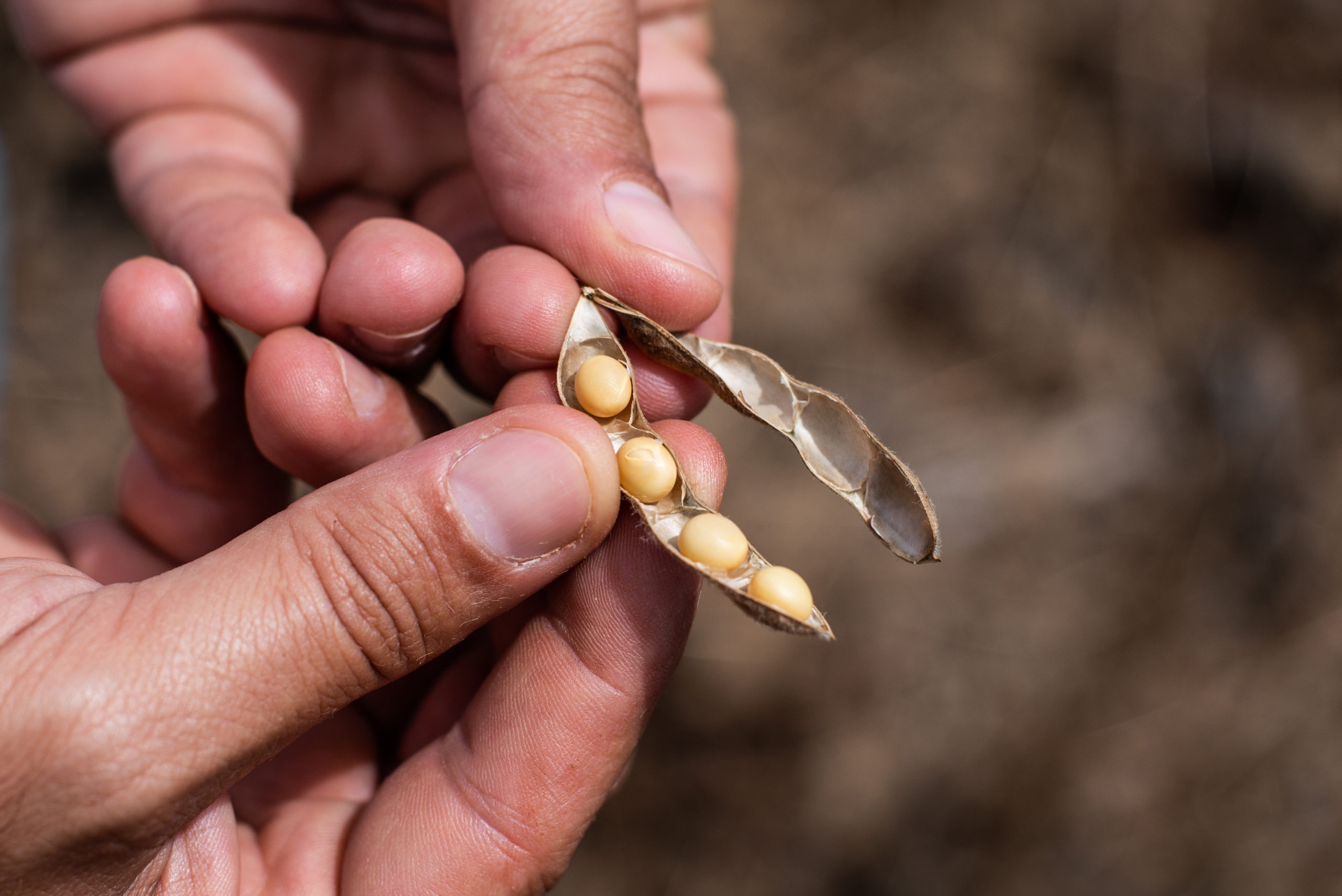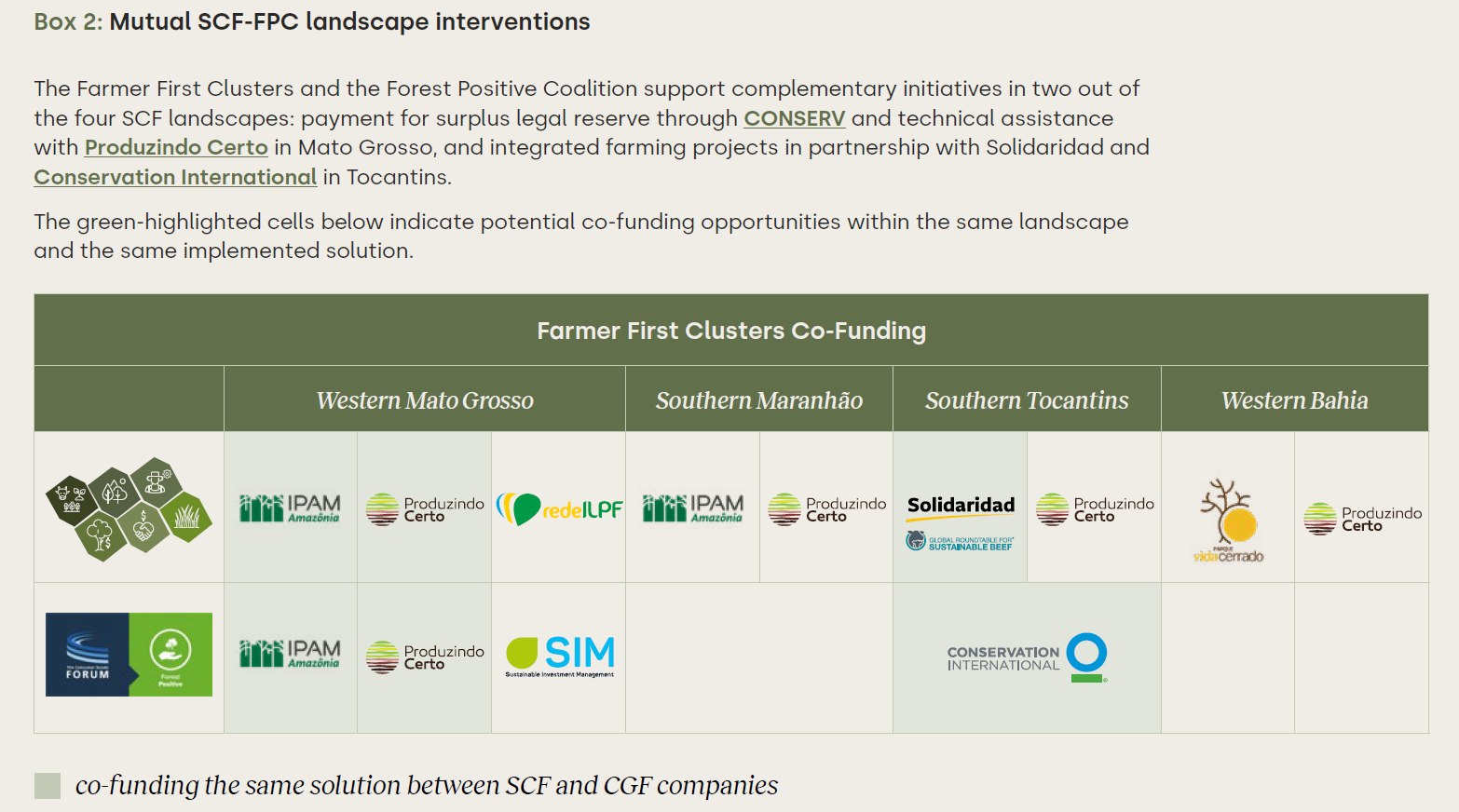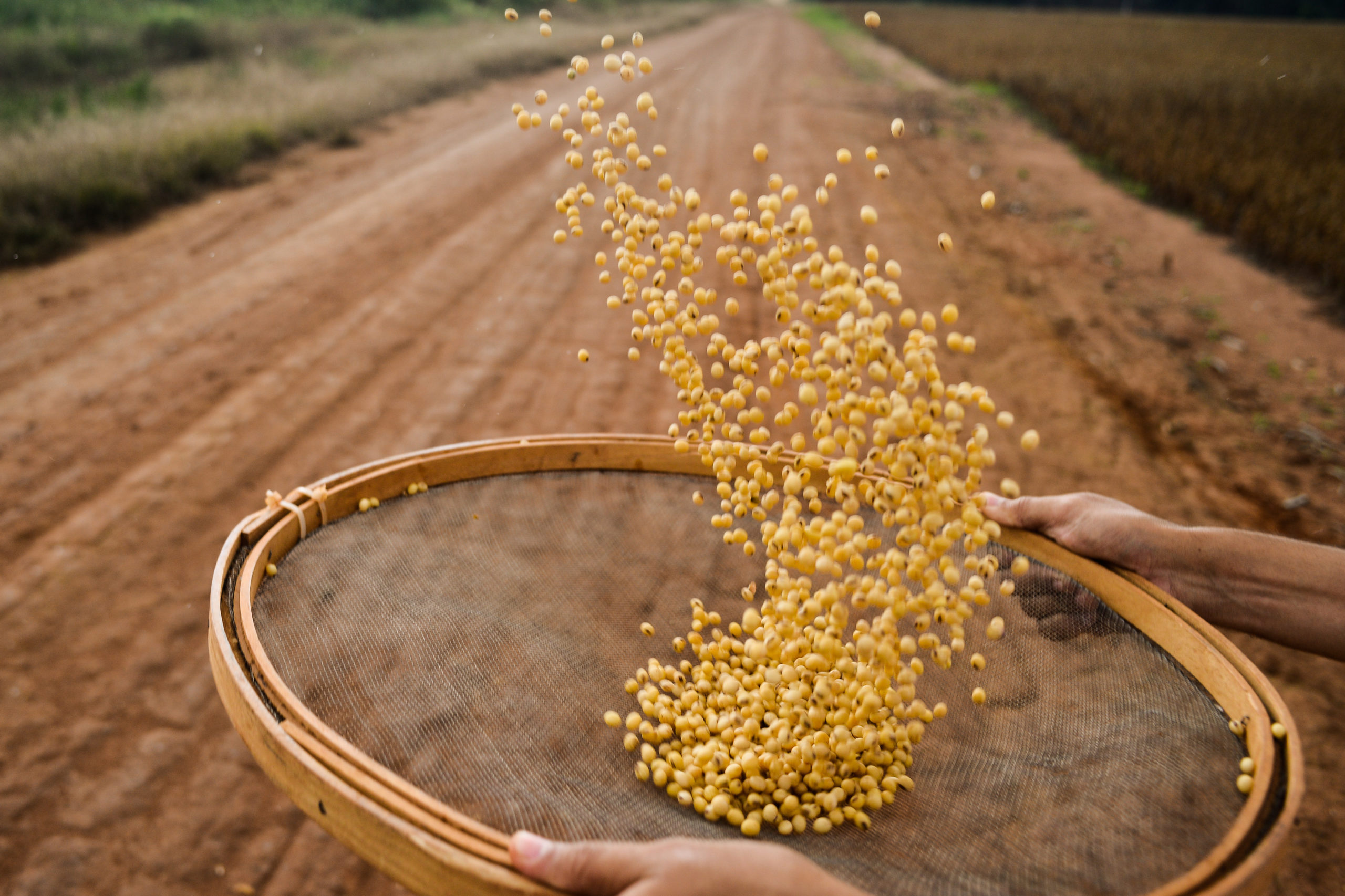
Why we do it
This workstream is our outreach branch, fostering transparency, dialogue, and collaboration with external stakeholders. The SCF engages both upstream and downstream stakeholders and value-chain partners for two primary purposes:
→ Build strong coalitions for a DCF agenda; and
→ Leverage landscape investment through forest finance and public-private partnerships.

Where we are
Building strong DCF coalitions with producers, advisors, and downstream supply chain partners
Producer Engagement
SCF members connect sourcing supply with global markets via their broad network of soy producers. One of the Farmer First Clusters initiative’s main assets is the program’s capacity to tap into the pool of farmers that SCF members provide as a key parameter for scalability.
Essential to the Farmer First Clusters’ deployment and success is mobilizing producers through raising awareness on the role that the initiative’s financial incentives can play in supporting sustainable land use management.
A Renewed Advisory Group
To effectively guide the SCF’s strategy, a wide range of expertise encompassing areas such as carbon accounting, farmer engagement, and financing approaches for landscapes is necessary. As a result, the SCF has expanded its Advisory Group to include individuals who bring these diverse perspectives into the decision-making process.
Our advisors play a crucial role in keeping us on track with the most important sustainability goals within our industry and our defined boundaries. They also ensure that our standards and methods receive recognition from a wide range of stakeholders. Their support will be essential in further solidifying the business case for, and effectively carrying out, the Farmer First Clusters initiative.
Advisory Group Composition:
→ João Adrien, Technical Advisor at Brazilian Rural Society
→ Petra Ascher, Director at Agrichains Brazil Project – GIZ
→ Thomas Blackburn, Head of Business Development at SustainCert
→ Petra Tanos, Head of Private Sector Engagement at Tropical Forest Alliance

CGF-SCF Engagement
The Consumer Goods Forum’s (CGF) Forest Positive Coalition (FPC) and the SCF share a responsibility to support supply chain transformation in commodity-producing landscapes. To address this responsibility, the SCF collaborates with the FPC on landscape initiatives in high-risk areas of the Cerrado, as outlined in Box 2 below. Together, we concentrate investment in regions where mutual solutions are deployed to promote forest-positive practices and outcomes at the local level.
Collaboratively, SCF and FPC investments in priority landscapes have resulted in the development of a shared Monitoring & Evaluation framework. Looking ahead to 2024, this partnership aims to establish standardized methods for quantifying landscape financing and monitoring the collective impact of interventions with shared reporting mechanisms.
Throughout 2022 and 2023, the FPC also consulted the SCF on the identification of deforestation and conversion risk factors to assess the feasibility of implementing DCF supply chains. During this consultation, the SCF encouraged individual FPC members to engage independently with relevant customer requests in this regard.
“In 2022, the FPC and SCF worked together to establish a common monitoring and evaluation framework. This framework serves as a vital instrument to measure the impact of landscape interventions and to pinpoint the municipalities that demand our collective attention. Furthermore, the FPC has joined the Landscape Council, a centralized platform that unites SCF and common implementing partners. Through this alliance, our goal is to foster collaborations and channel collective investments towards sustainable production landscapes.”
Aurélie Oberti – Member of Soy Working Group at the Consumer Goods Forum’s Forest Positive Coalition and Global Sustainability Lead (Grains, Forest & Land) at Mars Petcare

Forest finance and public-private partnerships: paths to scaling the Farmer First Clusters initiative
Collaboration with the Forest Investor Club
The SCF has partnered with the Forest Investor Club to assess and develop strategies to support long-term financing of the Farmer First Clusters initiative. Launched by the U.S. State Department and led by WBCSD as Secretariat, the Forest Investor Club is a global network of leading private and public sector investors committed to accelerating investment in forests and nature-based solutions. Recognizing the need to scale the Farmer First Clusters beyond its initial USD $7.2 million pilot and ensure it can be financially self-sustaining while fostering a new potential opportunity to meet investor demand, the Forest Investor Club is helping to identify potential revenue drivers, financial structures, and overall economics of the program as part of an initial study assessing the “Farmer First Clusters Case for Investment”.

Public-private partnerships (public/blended capital)
The USD $345 million Food Systems, Land Use, and Restoration Impact Program (FOLUR), led by the World Bank, aims to transform food and land use in 27 countries, including Brazil. In 2023-24, the SCF and FOLUR will assess the synergy between the Farmer First Clusters initiative and the FOLUR program in Brazil. A comparative analysis of their geographies, MRV systems, scalability principles, investments, and governance will uncover potential synergies.
In 2023, the SCF significantly expanded its stakeholder engagement activities to scale the Farmer First Clusters initiative, as exemplified by its interactions with the UK government and the Food Action Alliance (FAA), a World Economic Forum multi-stakeholder platform. The FAA selected the Farmer First Clusters as an investable flagship project to advance sustainable food systems in Brazil. Additionally, the SCF welcomed UK government representatives on a field trip to Western Bahia to explore challenges and opportunities related to sustainable production in the Cerrado.

